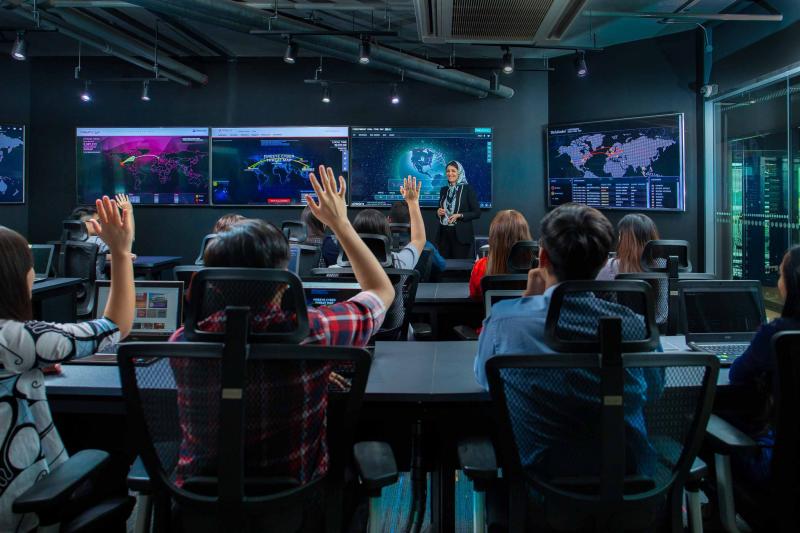Global Shortage of Cybersecurity Talent
Every second of our ‘digital life’ we actually count on the cyber expert or cybersecurity specialists to protect our data, privacy, and keep digital society safe from new threats – though this work is not often visible to most of us, it is still important to every individual or company and in fact, they are our front liners, unsung heroes.
Eventually, all devices will be connected to the Internet of Things (IoT). From laptops and mobile devices to interactive touch screens, even virtual reality (VR); these platforms have become a target for an army of unethical hackers (human & bots) looking for a victim and resulting in a huge price to pay in the form of data breaches.
Typically, hackers use phishing scams, spam emails, instant messages and bogus websites to deliver dangerous malware. They infiltrate and gain direct access to any personal information or monitor your conversations. Using the same back-end, they can lure you into revealing sensitive personal and financial information, or much worse.
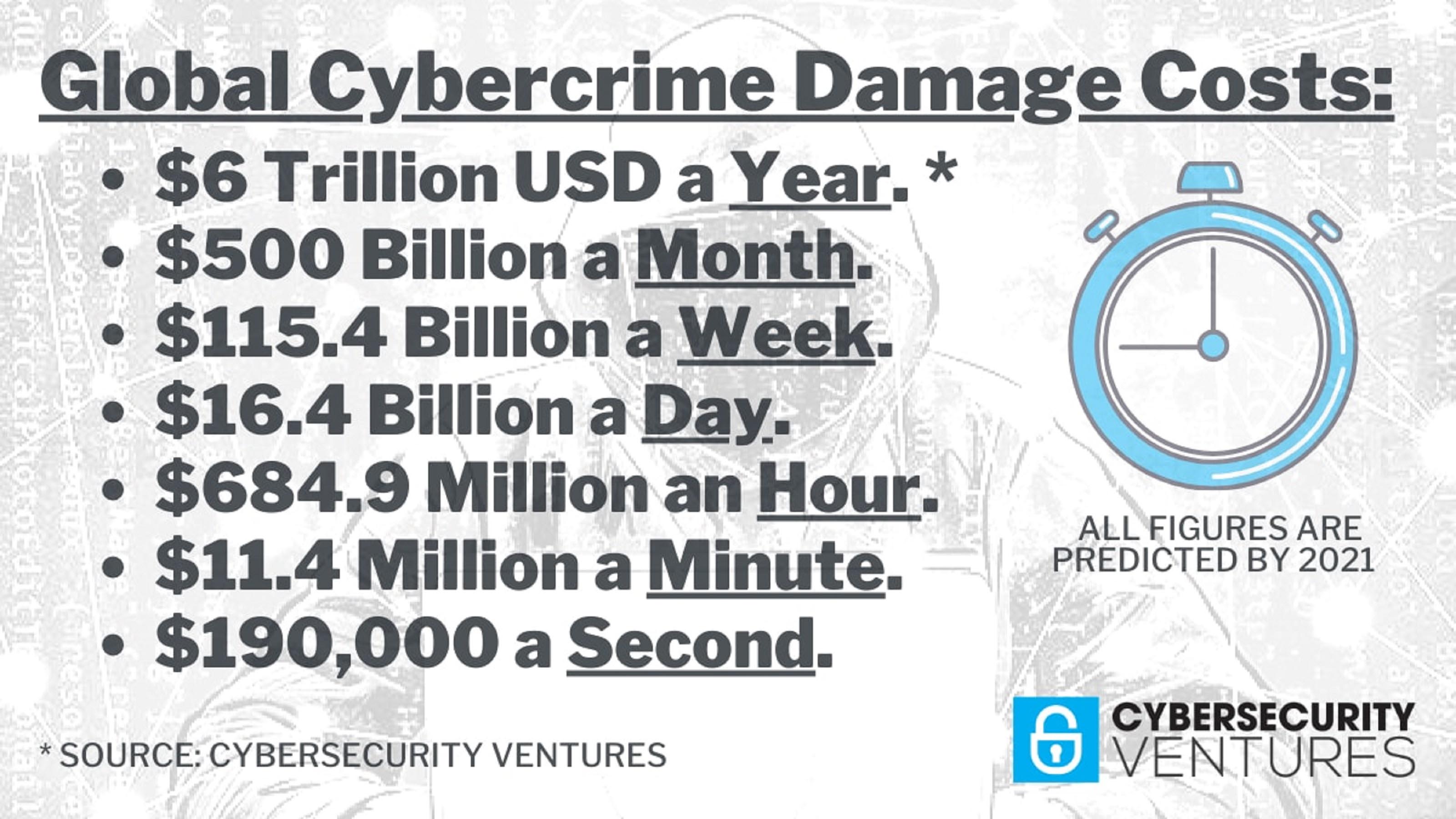
As Prime Minister, Tan Sri Muhyiddin Yassin said matters underlying economic and national security has “become an issue which seen no country can solve it alone as that cyberthreats know no borders and become more sophisticated and complicated than ever.”
“We cannot escape anymore from emphasising the elements of cybersecurity in each and every initiative,” he said at the virtual Cyber Defence & Security Exhibition and Conference 2021.
Global data analyzed by CyberSecurity Ventures₁, predict that the cost and financial damage to consumers, businesses and government agencies is approximately $6 trillion per year and is expected to grow by 15 percent per year over the next five years.
Within Malaysia, there is a high number of cybersecurity intrusions and fraud that are reported to the Royal Malaysian Police. These fraud incidents have also resulted in losses amounting to millions of ringgits. From January until May 2021, a total of 4,615 cybersecurity incidents were reported to the Cyber999 Help Centre, managed by CyberSecurity Malaysia₂. The three highest incidents reported during the period were fraud (3,299 cases), intrusion (765) and malicious code (256).
“Cybersecurity is one of the central pillars of the digital economy, recording more than twice the overall ICT spending growth in the country over the next five years, according to an IDC report. With the recently-launched Malaysia Cyber Security Strategy (MCSS) and MyDIGITAL, 20,000 cyber security knowledge workers are needed by 2025 to support the cybersecurity workforce demand from the industry,” said Malaysia Digital Economy Corporation (MDEC) Chief Executive Officer Surina Shukri.
“MDEC have various initiatives to ensure that the pipeline creating these talents goes unhindered and we strongly encourage youths to take up cybersecurity as a viable and lucrative career option. Together, we can build and enhance our ecosystem and digital economy, championing Malaysia as the Heart of Digital ASEAN.”
The cybersecurity issues elements featured in those report has been raised since 1997 as one of the main concerns for overs the years. However, Malaysia has established and taken various initiatives to strengthen cybersecurity in the country. As a result, Malaysia is now among the top 10 countries with the highest commitment to cybersecurity starting with the establishment of MyCERT – one of the departments under CyberSecurity Malaysia.
Based on the latest Global Cybersecurity Index released by the International Telecoms Union, a United Nations agency, Malaysia came in eighth (equal with Russia and the United Arab Emirates) out of 194 countries with 98.06 out of 100 points, and always been in the top 10 since the first report was released in 2014₃.
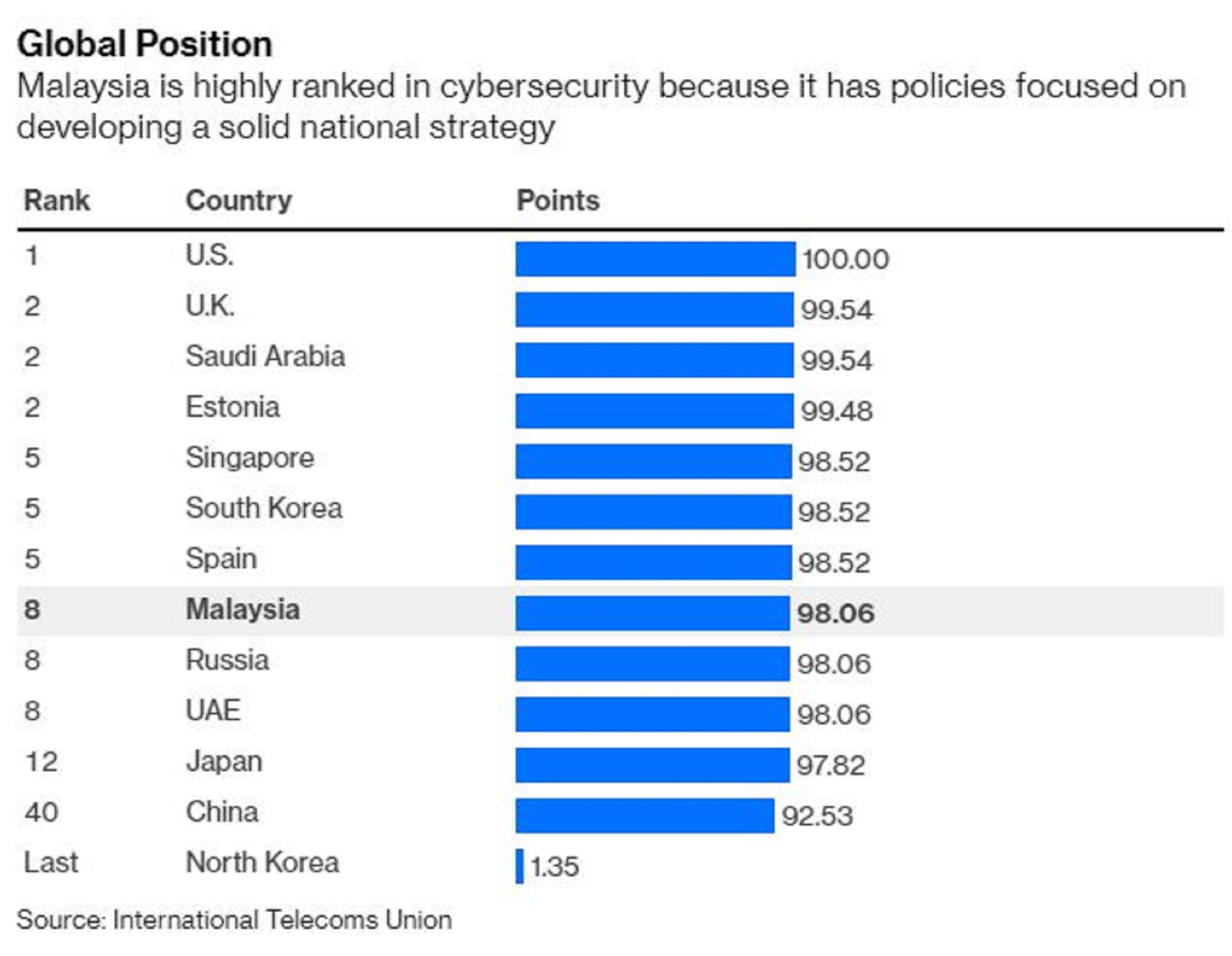
Global Demand for Cybersecurity Talent
Experts in the field of cybersecurity estimate at least top 10 percent of job opportunities in Malaysia will be related to cybersecurity in the near future. Not only cybersecurity professionals but also ethical hackers, digital forensics, cyber threat intelligence, network defence analyst and cloud solution developers will continue to be in demand.
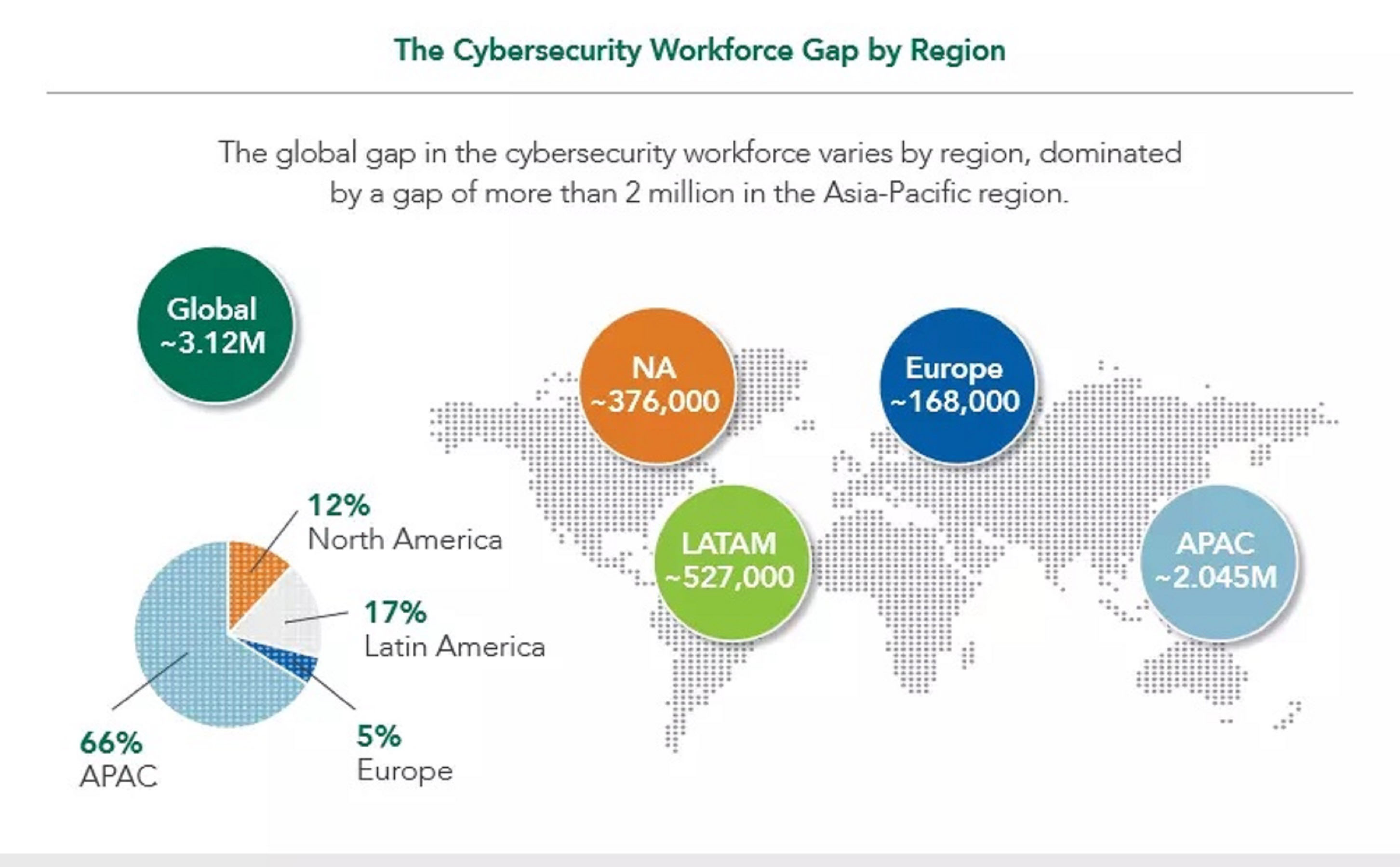
According to the World Economic Forum (WEF) report 2021, there is a global gap of over 3 million cyber security workforce with 2 million in APAC region alone. Cisco, Symantec, Cybersecurity Ventures, ISACA and Intel have all expressed concerns on global talent shortage respectively, as highlighted in the Cybersecurity Jobs Report 2018-2021 by Cybersecurity Ventures.
Together with our industry partners, especially Malaysia Digital Economy Corporation (MDEC), the Asia Pacific University of Technology & Innovation (APU) aims to respond to the local and global talent demand.
Specialised Programmes in Digital and Cybersecurity
As Malaysia’s Premier Digital Tech University, in addition to receiving the Best CyberSecurity Education Excellence Award, APU has leveraged on its edge in innovative education, by delivering high quality and industry-relevant programmes in the areas of Cyber Security & Digital Forensic, such as the BSc (Hons) Information Technology with a Specialism in Information Systems Security, BSc (Hons) Computer Science (Cyber Security), BSc (Hons) Computer Science with a specialism in Digital Forensics as well as Master of Science in Cyber Security.
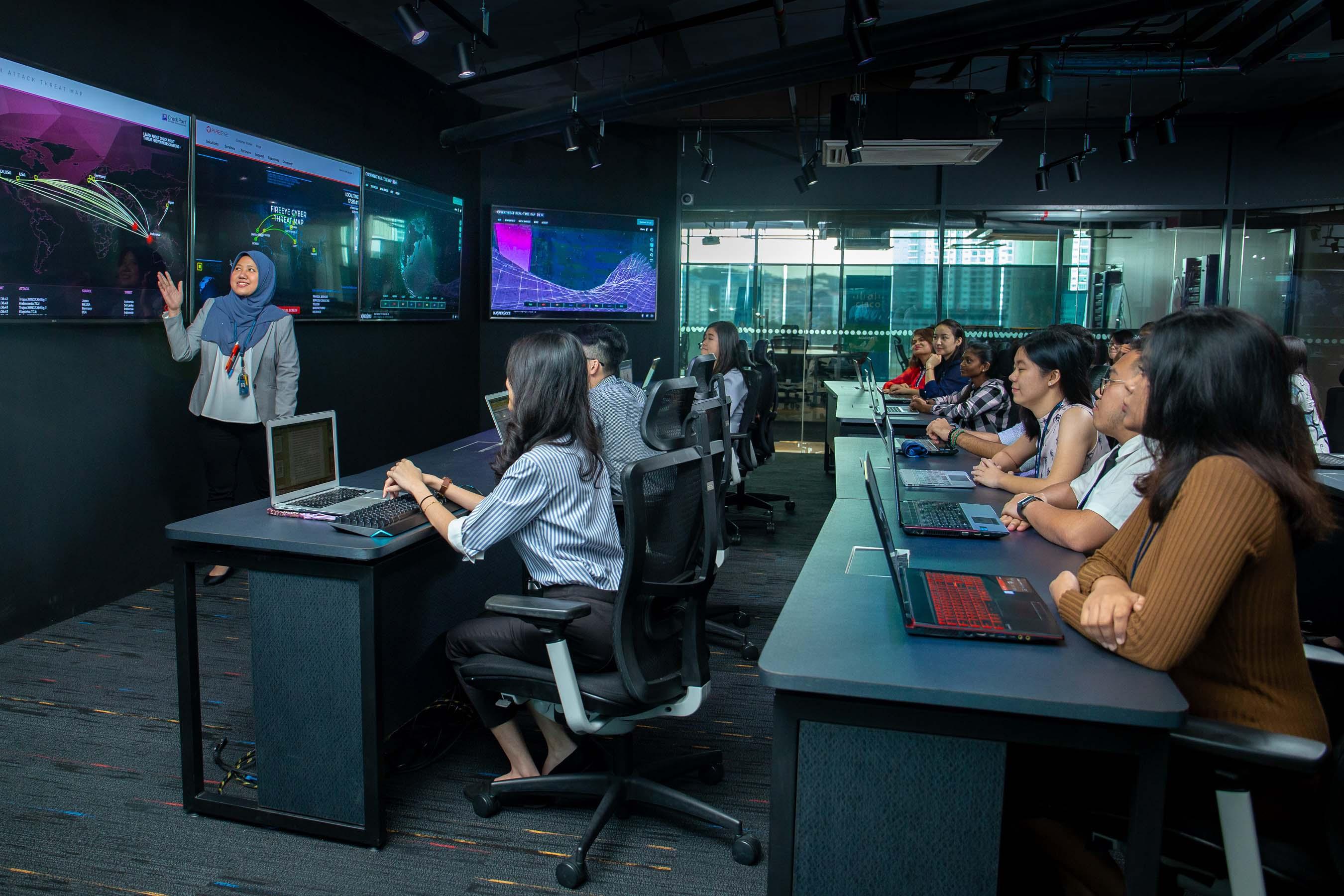
These programmes adhere to international curriculum standards & industry requirements and impart real-world cybersecurity practices to students resulting in successful track record of employable graduates.
Our industry advisory panel consists of experts from the cybersecurity field, such as CompTIA, ISACA, CSM, MDEC, TecForte, Cyber Test Systems, Rocheston, Cyber Intelligence and SecureKi. Through these highly collaborative partnerships and industry inputs, APU incorporates subjects such as biometrics, digital forensics, ethical hacking, device security, cloud computing, penetration testing and other relevant areas.
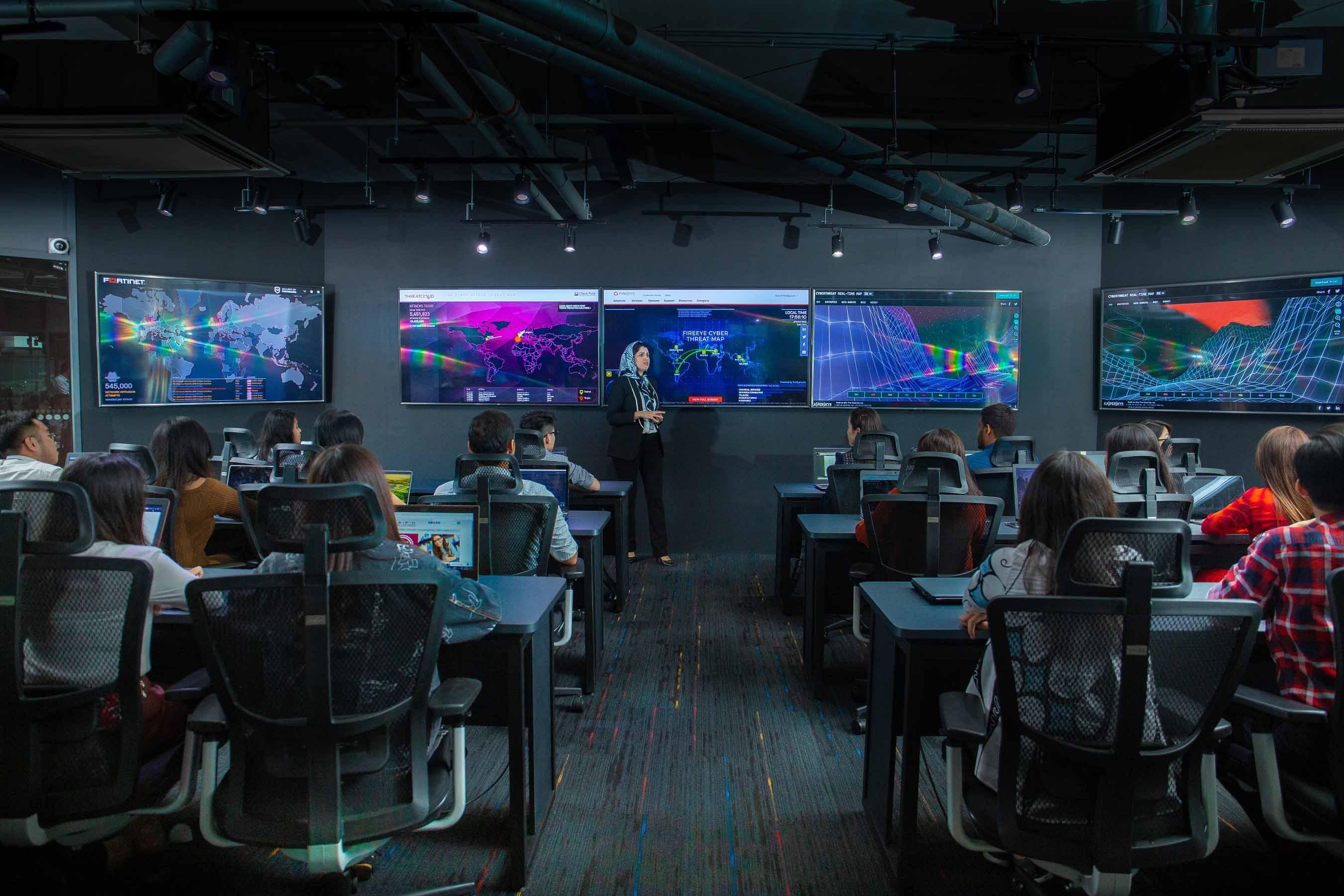
Cybersecurity Talent Zone (CSTZ) Fortifies Cybersecurity Skills
APU provides the nation’s first state-of-the-art infrastructure and sophisticated learning space called the CyberSecurity Talent Zone (CSTZ). The CSTZ incorporates military-grade real-time cybersecurity monitoring systems, research centres and simulation infrastructure to nurture cybersecurity professionals.
The full-fledged Cyber Threats Simulation and Response Centre (also known as Cyber Range) and Security Operations Centre (SOC) streams live monitoring data extracted from a database of cyber-attacks worldwide, providing a platform for hands-on practice when it comes to ethical hacking and incident response.
Based on real-time data, APU students learn to monitor, troubleshoot, investigate and escalate security breach issues – these experiences nurture security professionals who are ever-ready to join the cybersecurity workforce with their practical and technical exposure. Upon completion of the manning of the SOC for 50 hours and successfully completing all activities in an assessment, students get a Certificate of Completion from APU’s Industry partner, TecForte.
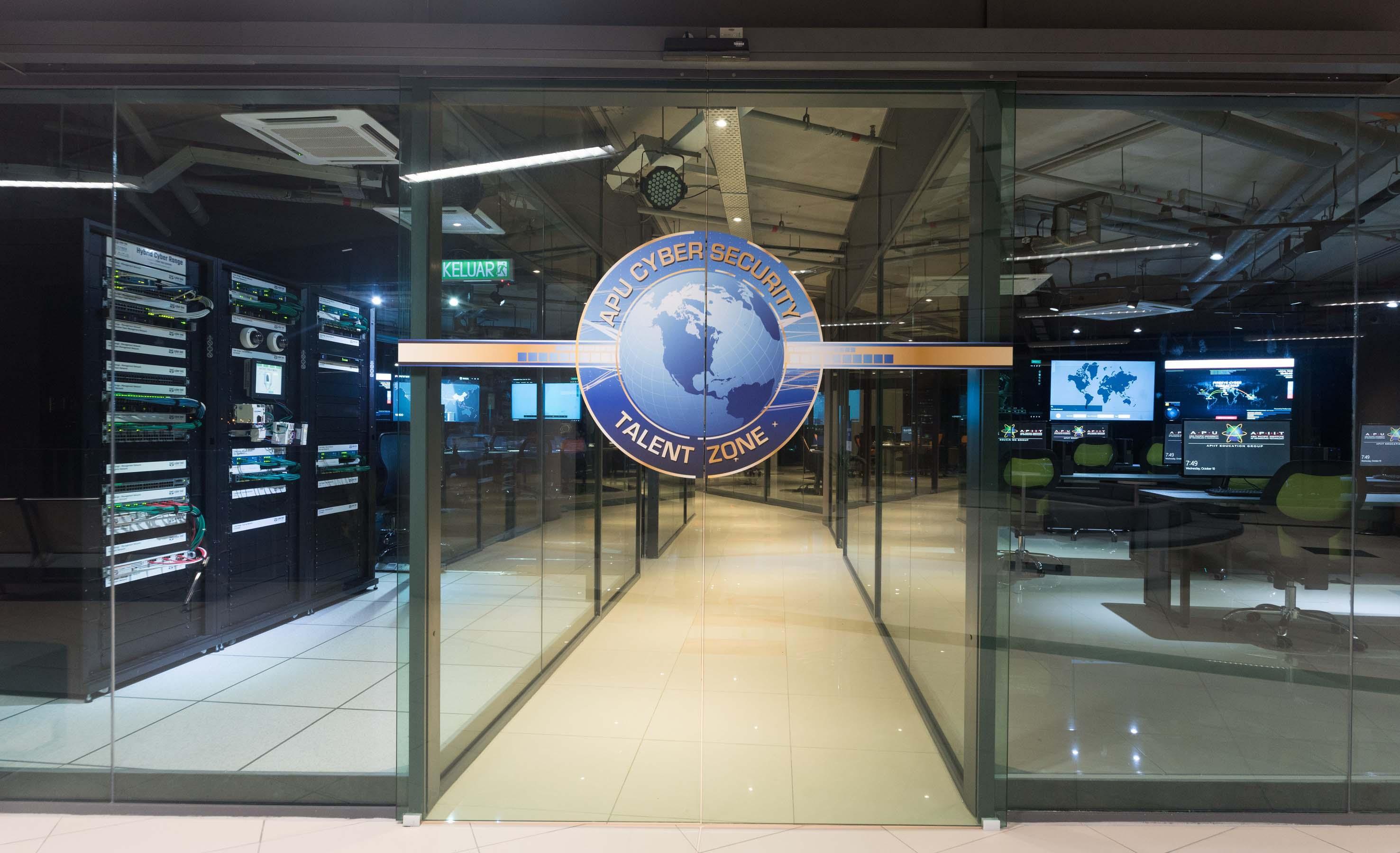
Making History With APU
Fortune Business Insights report, titled “Cyber Security Market Size, Share & COVID-19 Impact Analysis, By Component (Solution and Services), By Deployment Type (Cloud and On-Premise), By Enterprise Size (Small & Medium Enterprise and Large Enterprise), By Industry (BFSI, IT and Telecommunications, Retail, Healthcare, Government, Manufacturing, Travel and Transportation, Energy and Utilities and Others) and Regional Forecast, 2021-2028” concluded that cybersecurity market going to make promising progress by increasing adoption of latest technologies to boost the market₄.
The size of the cybersecurity market is expected to reach $ 174.09 billion in 2025. Driven by increased use of technologies such as artificial intelligence (AI), IoT and machine learning will lead to an 8 percent increase in the compound annual growth rate (CAGR) during 2020-2025.
Additionally, the increasing demand for cloud-based cybersecurity systems, demand for network and endpoint security, mobile security and behaviour detection security also boosting the market growth over expectations.
The amalgamation of qualified academic professionals, industry-relevant curriculum and world-class facilities have produced digital security unsung heroes of APU, who constantly outperform their peers at national and international level competitions. Some notable achievements include the Best Cybersecurity Education Provider in Asia (2021, 2020 and 2019), Top University Award in KPMG Cyber Challenge 2018, Champion of the F-Secure Intervarsity Cybersecurity Challenge (2020, 2018, 2017, 2016), Global Champion Ernst & Young Cyber Security Hackathonin 2018 in Hong Kong, Global Cyber Heroes Challenge (2019) and many more.
Graduates of APU’s digital security programmes are part of the global digital security workforce, as they are employed globally in renowned multinational companies, such as KPMG, LGMS, FusionEx, TecForte, Maybank, IBM, Accenture, Standard Chartered Bank, Ernst & Young (EY) and more. According to the latest Annual Graduate Tracer Study by the Ministry of Higher Education, 100% of APU graduates were employed upon graduation.
Our graduates are equipped with abilities to develop skills and background related to cybersecurity such as evaluate design paradigms, languages, algorithms, and demonstrate techniques to develop complex software systems and exploiting new technologies and applications.
“APU has always strived to provide its students, industry-relevant curriculum and hands-on experience, for better career readiness and 100% employability. As a Premier Digital Tech University, APU was identified by MDEC to be a strategic academia partner with the industry and this collaboration led to the establishment of a state-of-the-art Cyber Security Talent Zone (CSTZ) which houses the Cyber Range and the Security Operations Centre (SOC) alongside Forensics and Security Research Centre and many others.
The cybersecurity and digital forensics programmes at both the undergraduate and postgraduate levels, are supported by the CSTZ for hands-on exposure to students on ethical hacking and incident response, which is a contributory factor in making APU the forerunner amongst all other universities in winning several IT-related awards, particularly in cybersecurity, in various inter-varsity competitions and thereby making a mark for itself both locally and overseas,” stated Ms Supriya Singh, Head School of Technology.
In order to help further understanding relating to APU's cybersecurity courses and facilities, please log into www.apu.edu.my or call us at +603 8996 1000/1 300 888 278 (toll-free) or email us at [email protected].

RM12.50 / month
- Unlimited access to award-winning journalism
- Comment and share your opinions on all our articles
- Gift interesting stories to your friends
- Tax deductable
